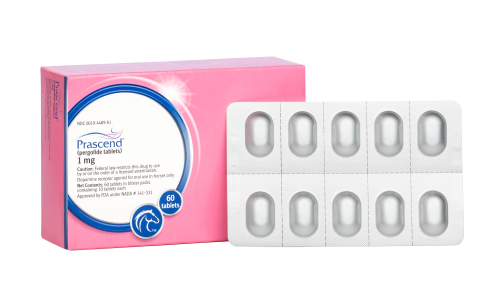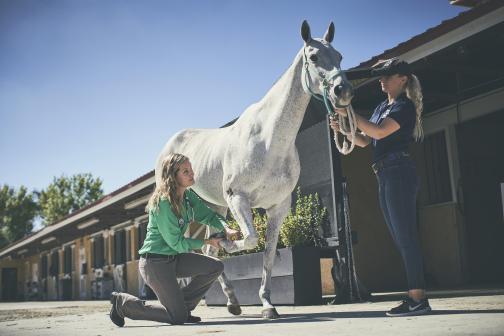IMPORTANT SAFETY INFORMATION: PRASCEND is for use in horses only. PRASCEND has not been evaluated in breeding, pregnant, or lactating horses. Treatment with PRASCEND may cause loss of appetite. Most cases are mild. If severe, a temporary dose reduction may be necessary. Weight loss, lack of energy, and behavioral changes also may be observed. PRASCEND is contraindicated in horses with hypersensitivity to pergolide mesylate or other ergot derivatives. Not for use in humans. Do not ingest the product. PRASCEND tablets should not be crushed due to the potential for increased human exposure. Pergolide, like other ergot derivatives, may cause emesis, dizziness, lethargy or low blood pressure. Pregnant or lactating women should wear gloves when administering this product. Store this product separately away from human medicinal products and handle this product with care to avoid accidental ingestion. Keep PRASCEND in a secure location out of reach of dogs, cats, and other animals to prevent accidental ingestion or overdose. Dogs have eaten PRASCEND tablets that were placed in food intended for horses or dropped during administration of the tablets to the horses. Adverse reactions may occur if animals other than horses ingest PRASCEND tablets. Refer to the package insert for complete product information.






